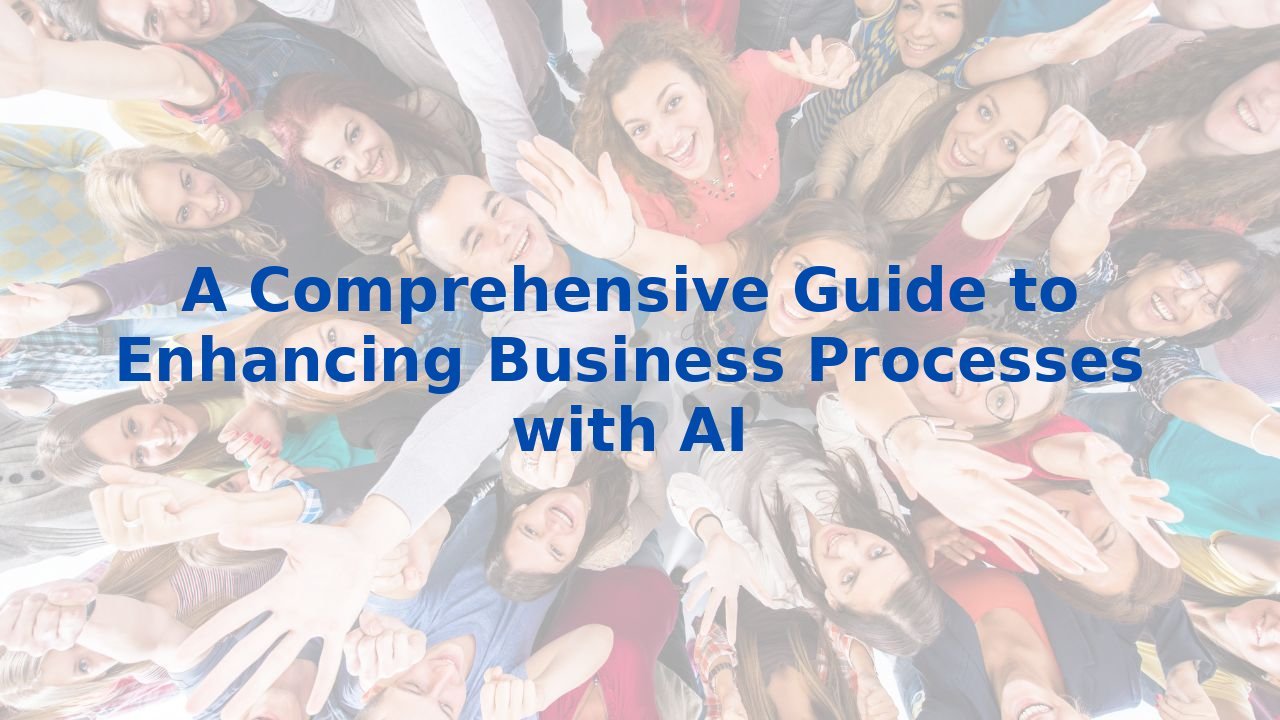A Comprehensive Guide to Enhancing Business Processes with AI
A Comprehensive Guide to Enhancing Business Processes with AI
Business Process Management (BPM) has always been the backbone of operational effectiveness. As organizations strive for continuous improvement, the rise of Artificial Intelligence (AI) has ushered in a new era of possibilities. This guide will explore how AI can not only enhance traditional BPM but revolutionize it, leading to remarkable efficiencies across various business processes.
Understanding Business Process Management
At its core, BPM is the systematic approach to developing, managing, and optimizing business processes. This evolution, which began in the late 1980s, has been significantly shaped by AI technologies in recent years. By identifying weaknesses in existing frameworks and enhancing them through intelligent solutions, companies can achieve unprecedented levels of quality and productivity.
AI's Transformative Power in Business Processes
AI brings forth compelling advantages, reshaping operations in various impactful ways:
1. Process Discovery and Mapping
AI excels at process mining and pattern recognition, using complex algorithms to uncover existing workflows. Traditional methods are often slow and limited to employee interviews or manual data analysis; however, AI rapidly analyzes vast datasets, revealing inefficiencies and bottlenecks within the organization. Through advanced data insights, companies can grasp the actual state of their processes and make informed adjustments.
2. Process Automation
Automation powered by AI streamlines tedious, repetitive tasks that bog down employee productivity. Actions such as invoice processing, employee onboarding, and vacation request handling can be executed automatically, allowing human resources to focus on higher-level strategic initiatives. The result? Faster, cost-efficient workflows with minimized errors.
3. Real-Time Monitoring and Improvement
Imagine having the ability to monitor your business processes in real-time—AI makes this a reality. By continuously tracking key performance indicators, organizations can swiftly identify and address issues as they arise. This immediacy strengthens operational agility, paving the way for faster responses to challenges and emerging opportunities.
4. Decision-Making Support
Data-driven decision-making is fundamental to modern businesses. AI enhances this process by providing simulations, scenario analyses, and data synthesis from various sources, allowing decision-makers to visualize outcomes and assess risks dynamically. With comprehensive insights at their fingertips, leaders can make sound decisions with greater confidence.
5. Customer Service Enhancement
The customer experience is pivotal for brand loyalty and growth. AI enhances customer service by automating inquiries, enabling seamless routing to relevant agents, and analyzing customer feedback to identify sentiment and trends. This personalization creates deeper connections with customers and cultivates a supportive relationship.
Benefits of Integrating AI in Business Processes
The implementation of AI technology within business processes offers a wealth of benefits:
- Improved Efficiency: By automating repetitive tasks, employees are empowered to focus on creative and strategic endeavors.
- Enhanced Decision-Making: AI equips teams with predictive insights and analytics, sharpening their decision-making capabilities.
- Increased Productivity: Streamlined operations reduce manual errors, promoting higher output in less time.
- Better Customer Experience: The sophistication of AI leads to tailored interactions, resonating with customers and enhancing loyalty.
The Crucial Role of Employee Training in AI Integration
While the technological prowess of AI is undeniable, the success of its integration hinges on how well employees can leverage these tools. Employee training plays a transformative role in this process.
- Adoption and Integration: Comprehensive training equips employees to seamlessly incorporate AI into their workflows.
- Skill Development: A skilled workforce maximizes AI’s potential, turning automation into strategic advantages.
- Data Interpretation: Employees trained in data analytics can harness AI-generated insights for informed business decisions.
- Continuous Improvement: Staying current with AI developments ensures organizations remain at the forefront of innovation.
Conclusion
The integration of AI into business processes is transforming how organizations operate. It enhances process discovery, automation, real-time monitoring, decision-making support, and customer service—creating a landscape of efficiency and effectiveness. Yet, for organizations to reap the full benefits of AI, investing in employee training is non-negotiable. By bridging the gap between technology and human capability, businesses can elevate their operational excellence and position themselves for sustainable growth in an increasingly competitive world.
To equip your workforce with the necessary AI skills, explore opportunities that can benefit your organization. Training your employees not only amplifies their capabilities but also serves as a catalyst for innovation and agility in navigating today’s complex business environment.



